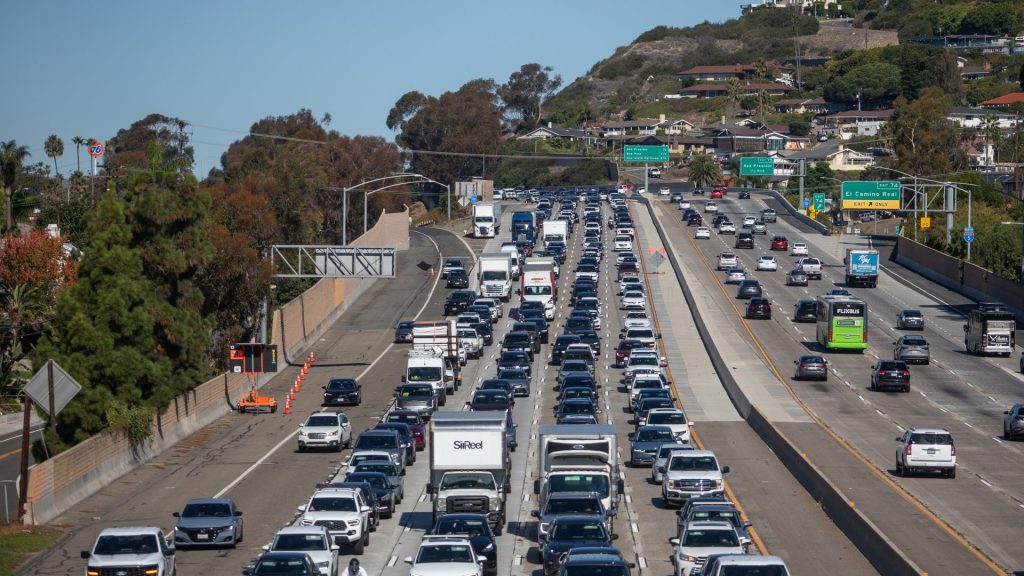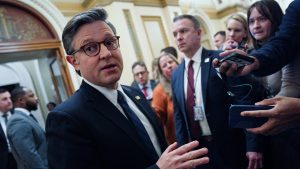‘Unaffordable burden’: More Americans are missing their car payments

Data shows more Americans are struggling to afford their cars. Economists are concerned it could be another indicator of a potentially incoming recession. A study from VantageScore showed car payment delinquencies have increased by 50% in the last 15 years.
Car loan issues
That shows car loans have gone from one of the most secure consumer credit products to one of the riskiest.
“If you look historically, it’s not really in a critical territory yet,” Campbell Harvey, professor of finance at Duke University, told Straight Arrow News. “The trend is what you need to worry about.”
New numbers from the Consumer Federation of America, or CFA, found Americans owe a record $1.66 trillion in auto debt.
“Buying a car should be a way for families to achieve economic success, but it is increasingly becoming an unaffordable burden that pushes consumers down into a debt spiral,” Tara Mikkilineni, senior fellow at CFA, said in a statement. “The stress we are seeing in the auto finance marketplace is a glaring warning sign for policymakers to reexamine this market and root out exploitative conduct.”
Part of the issue is auto loan payments have been on the rise for years.
The cost of a new vehicle now averages $50,080, the first time it’s ever been above the $50,000 mark. That’s more than double the average cost from 2010.
It’s not just the purchase price that’s risen. Americans now spend an average of more than $800 on one round of auto repairs according to Kelley Blue Book.
Signs of the economy
“Delinquencies, defaults and repossessions have shot up in recent years and look alarmingly similar to trends that were apparent before the Great Recession,” the CFA report reads.
Looking at loan delinquency is one of many factors’ economists look at when assessing the economy.
“There’s many indicators that people look at,” Harvey said. “There’s a long list of data, and some of it is conventional, some of it isn’t, and we’re constantly struggling trying to get that early warning for a slowdown.”
Among those indicators are car loan delinquency, along with credit card debt, regular loans and more. The reason that can be an indicator is because it’s a sign of spending power, which Harvey said has the biggest impact on the overall GDP of the nation.
“The most important component is personal spending,” Harvey said. “It’s called personal consumption expenditures. 70% of our GDP is consumer spending. So anytime you see the delinquencies increase, that means that people don’t have the money to make the payment, and that also implies that they don’t have the money to spend what they usually spend.”
While those signs can point towards a recession, there’s one factor that has Harvey especially concerned.
“The trend in employment,” Harvey said. “And this trend has been manifesting for quite a while, and just the number of job openings used to greatly exceed the number seeking employment.”
Recent data shows that’s exactly what’s happening in the U.S. right now.
“That, to me, is the dark cloud that is over our economy right now,” Harvey said.
Recession on the way?
While there are some very positive signs in the current economy like record stock market highs and unemployment still low, Harvey said it’s not a matter of if a recession is coming, it’s when.
“We’re in a period of kind of extended growth and at any point, there could be a recession,” Harvey said. “And it’s difficult to forecast. Everybody wants to forecast this and look at all the data, but yeah, I do think that there are some serious issues.”
He said another issue is that America’s “fiscal house is not in order.”
“I can understand that if we’re in a war or in a pandemic or something really, really bad,” Harvey said. “But at a time where you’ve got robust GDP growth, low inflation, record high stock market to run a $1.9 trillion deficit, that is a sign of a major problem.”
Harvey added that the deficit is from not enough revenue coming into the government along with too much spending.
He said the three ways to decrease that deficit is to cut spending, increase revenues or increase growth.
Harvey also laid out one other issue.
“People around the world are questioning U.S. leadership,” Harvey said. “And what I mean by that is questioning the role of the dollar. So, the dollar is the reserve currency of the world. Central banks hold dollars as their safe asset, and many countries are questioning whether the U.S. dollar in the future will continue to have the same status, and we’ve seen a very substantial drop in the value of the dollar as a result of this.”
Harvey pointed to the substantial increase in the price of gold as a marker of uncertainty in the dollar.
The post ‘Unaffordable burden’: More Americans are missing their car payments appeared first on Straight Arrow News.





